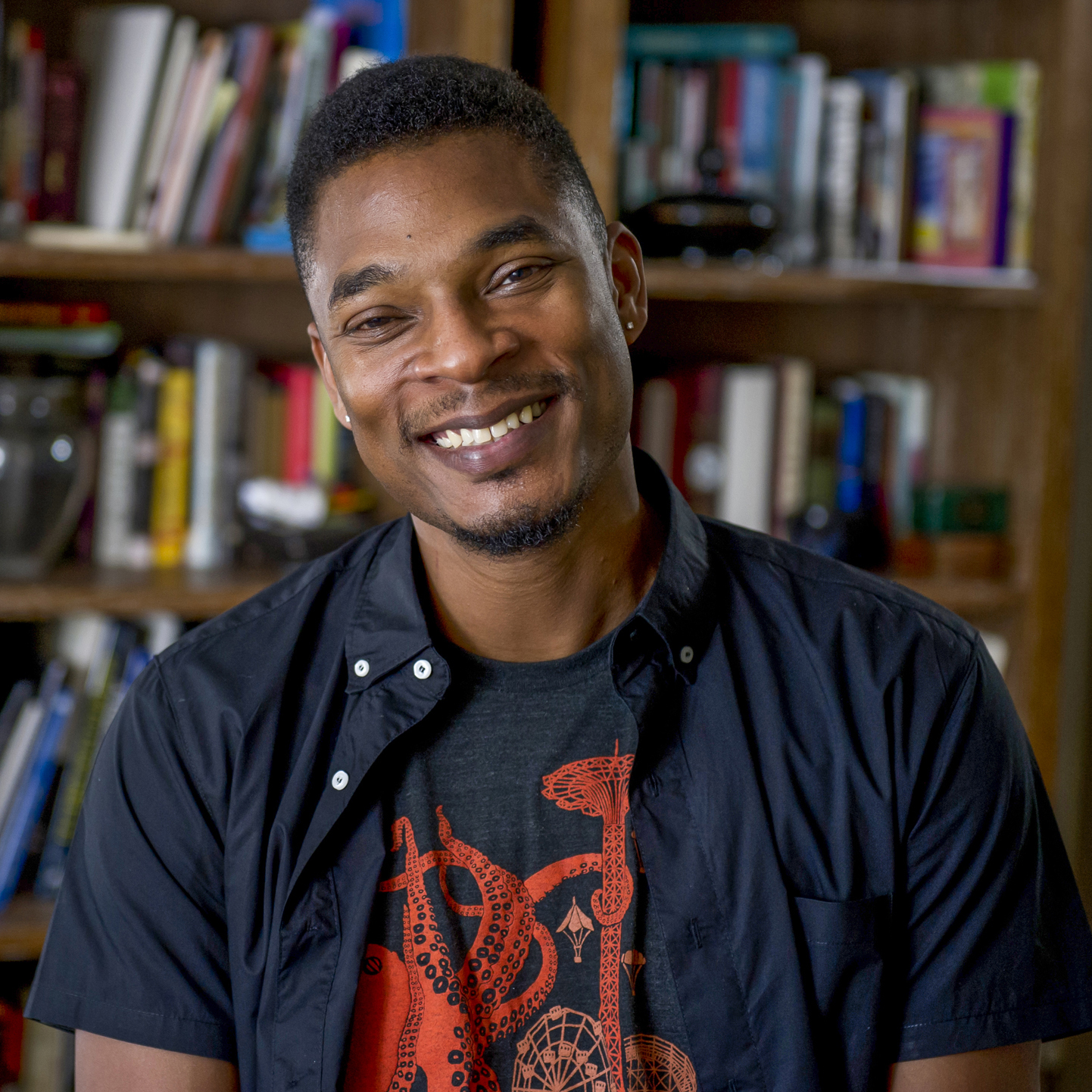After I have parked below the spray paint caked in the granite
grooves of the Frederick Douglass Middle School sign,
where men-size children loiter like shadows drape in outsize
denim, jerseys, braids, and boots that mean I am no longer young;
after I have made my way to the New Orleans Parish Jail down the block,
where the black prison guard wearing the same weariness
my prison guard father wears buzzes me in, I follow his pistol and shield
along each corridor trying not to look at the black men
boxed and bunked around me until I reach the tiny classroom
where two dozen black boys are dressed in jumpsuits orange as the carp
I saw in a pond once in Japan, so many fat, snaggletoothed fish
ganged in and lurching for food that a lightweight tourist could have crossed
the water on their backs so long as he had tiny rice balls or bread
to drop into the mouths below his footsteps, which I’m thinking
is how Jesus must have walked on the lake that day, the crackers and crumbs
falling from the folds of his robe, and how maybe it was the one fish
so hungry it leaped up his sleeve that he later miraculously changed
into a narrow loaf of bread, something that could stick to a believer’s ribs,
and don’t get me wrong, I’m a believer too, in the power of food at least,
having seen a footbridge of carp packed gill to gill, packed tighter
than a room of boy prisoners waiting to talk poetry with a young black poet,
packed so close they'd have eaten each other had there been nothing else to eat.
Published:
2010
Length:
Regular
Literary Movements:
Contemporary
Anthology Years:
2022
2023
Themes:
Education & Learning
Poems of Place
Politics
Racial Injustice
Literary Devices:
Alliteration
the repetition of the same letter or sound at the beginning of words appearing in succession
Couplets
two lines of verse, usually in the same meter and joined by rhyme, that form a unit
Metaphor
a comparison between two unrelated things through a shared characteristic
Simile
a comparison between two unlike things using the words “like” or “as”

